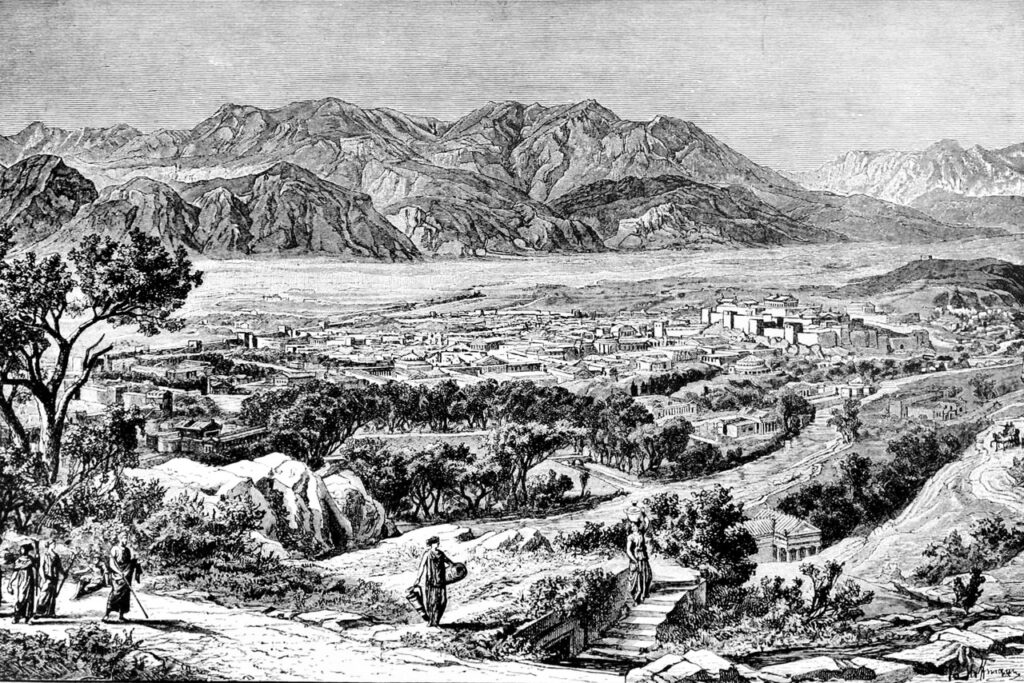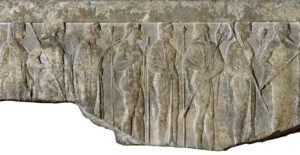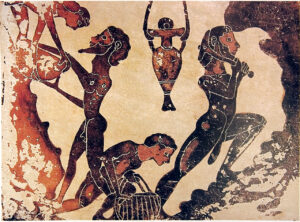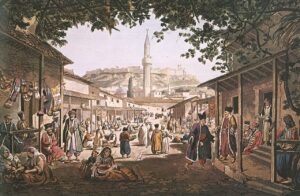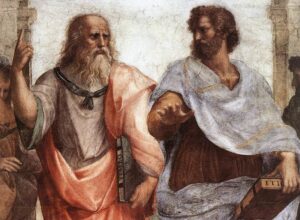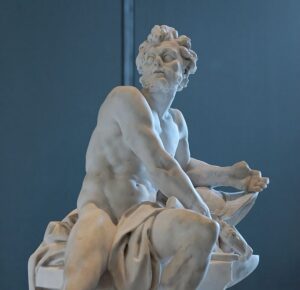Sparta in ancient Greece was a city-state located in the south of the Peloponnese peninsula. It was known for its highly disciplined and militaristic society. The city was renowned for its army, which was considered one of the most powerful and feared military forces in the ancient world. This article looks into the history, culture, and daily life of the people of Sparta, as well as its significance in ancient Greek society.
Early History of Sparta in Ancient Greece
Sparta was founded about 900 BCE and was located in the region of Laconia, in the southeastern part of the Peloponnese peninsula. The city was initially inhabited by the Dorians, a group of Indo-European peoples who migrated to the area. Sparta was built on the banks of the Eurotas River and was strategically located to control the surrounding areas. Over time, Sparta became a powerful city-state with a well-organized military, a strong economy, and a complex social structure.
In the 8th century BCE, the Spartans conquered the neighboring territories of Messenia and enslaved the local population, turning them into helots (slaves). These helots, who comprised the majority of the population, were forced to work the land and provide food and resources for the city-state.
The strict militaristic society of Sparta was established in the 7th century BCE, and from a young age, all male citizens were required to undergo military training and were expected to serve in the army until the age of 60. The army was considered the backbone of the city-state and was used to maintain control over the helots and to conquer new territories.
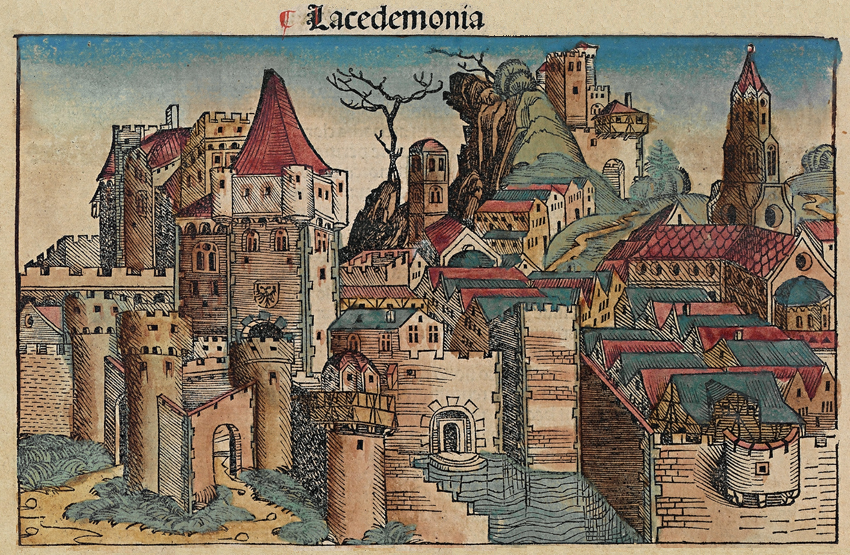
Society of Sparta in Ancient Greece
The society of Sparta in ancient Greece was divided into three main classes: the citizens, the perioikoi, and the helots. The citizens were the elite of the city and were the only ones who had the right to participate in government and hold political office. The perioikoi were free people who lived in the surrounding countryside and engaged in commerce and industry. The helots were the lowest class in Sparta and were essentially slaves who worked the land and provided the food that supported the city.
Women in Sparta were also held in high regard in Spartan society and generally well educated. As well, they were expected to be strong and physically fit to bear healthy children. This wasn’t necessarily the same as other city-states in ancient Greece. For example, women in Athens were often left out of political matters and instead expected to care for the home and family life. Whereas, women in Sparta generally enjoyed more freedom. For example, Spartan women could legally own property.
Daily Life of Sparta in Ancient Greece
Sparta in ancient Greece was known for its strict and disciplined society, with a strong emphasis on physical fitness, military training, and obedience to the state. The daily life of the people of Sparta revolved around this militaristic culture, and it was considered an honor to serve in the army and defend the city-state.
Education was also highly valued in Sparta in ancient Greece, and both boys and girls received a formal education, with a focus on physical training, music, and literature. More specifically, the education system of Sparta was centered around military training and physical fitness. From a young age, boys were taken from their families and trained in military schools, where they learned to fight, run, and jump. Girls were also given physical training and education, although not to the same extent as boys. The aim of this education was to produce strong, capable warriors who would defend the city and serve in its army.
Despite its strict and disciplined society, Sparta in ancient Greece was known for its simple and modest way of life, with a focus on self-sufficiency and hard work. The city-state was also known for its strong sense of community and civic responsibility, with all citizens expected to contribute to the well-being of the state.
Economy of Sparta in Ancient Greece
The economy of Sparta in ancient Greece was based on agriculture and trade, with the helots providing the food that supported the city and the perioikoi engaging in commerce and industry. The city was also known for its metalworking and handicrafts, and its products were highly prized throughout Greece.
Military of Sparta in Ancient Greece
As stated above, the military was the backbone of Sparta in ancient Greece, and the city was famous for its warriors and their ability to fight and conquer. All citizens were required to serve in the army and were given the best possible training to prepare them for battle. The army was highly organized and was divided into different units, each with a specific task and purpose. The elite unit of the army was the Hippeis, a group of 300 warriors who were fearsome in battle.
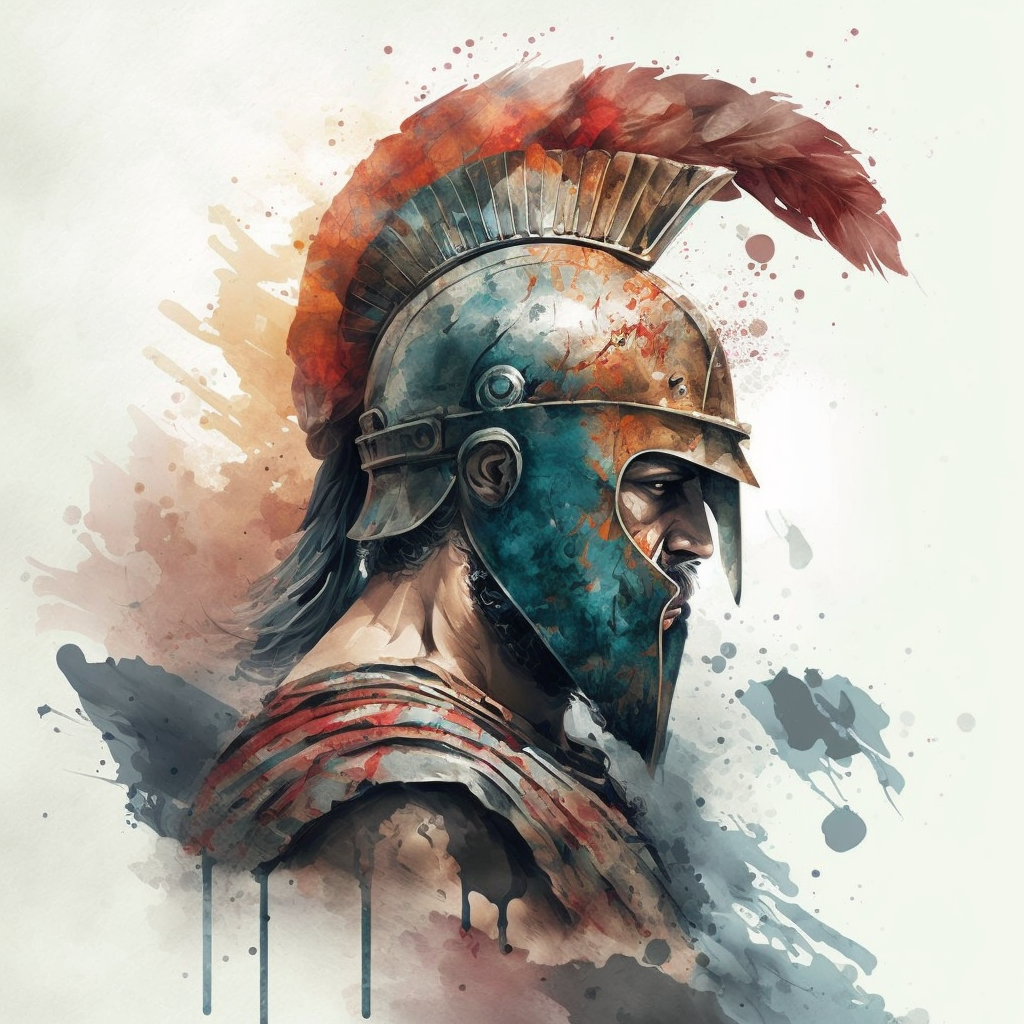
Sparta Versus Athens in Ancient Greece
In the 6th century BC, Sparta became one of the leading powers in Greece, along with Athens. The two city-states often clashed, both politically and militarily, and their rivalry eventually led to the outbreak of the Peloponnesian War in 431 BCE. Sparta emerged victorious in the war, but its power declined in the following centuries, and it was eventually conquered by the Romans in the 2nd century BCE.
Sparta’s government was an oligarchy, which means that it was ruled by a small group of people. The government of Sparta was made up of two kings and a council of elders. Whereas, Athens developed a form of direct democracy.
Despite its strong military, Sparta was not a major cultural center like Athens. However, it was home to some of the greatest philosophers and writers of the time, such as Plutarch and Lysander.
Decline of Sparta in Ancient Greece
Despite its powerful military, Sparta’s authority in ancient Greece began to decline in the 4th century BCE. The city faced several internal and external challenges, including economic difficulties, political unrest, and invasions by foreign powers.
One of the major factors in Sparta’s decline was its rigid social and political structure, which made it difficult for the city to adapt to changing circumstances. For example, Sparta was heavily dependent on slave labor, which made it vulnerable to economic disruption. Furthermore, the city’s strict discipline and military focus made it difficult for the population to engage in trade and commerce.
Sparta was eventually conquered by the Thebans in 371 BCE, and its political and military power declined rapidly thereafter. The city became a shadow of its former self, and by the time of the Roman Empire, it was a minor city of little significance.
Significance of Sparta in Ancient Greece
Sparta played a significant role in ancient Greek society, as one of the most powerful city-states in the region. The city-state was known for its military prowess and was feared by its neighbors, who often sought alliances with Sparta to maintain peace and stability in the region.
Sparta also played a significant role in the formation of the Delian League, a military alliance of Greek city-states formed in 478 BCE to protect against the threat of Persian invasion. The Delian League was led by Athens, and Sparta joined as a powerful ally, contributing its military might to the alliance.
In addition to its military power, Sparta was also known for its simple and modest way of life, which stood in stark contrast to the luxurious and decadent culture of other city-states, such as Athens. The city-state was considered a model of simplicity and self-sufficiency, and its reputation as a strong and disciplined society has had a lasting impact on Western culture and history.

